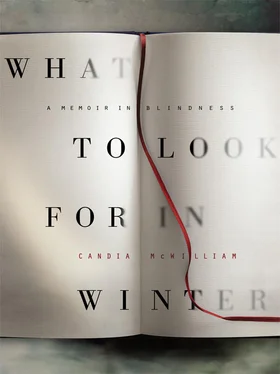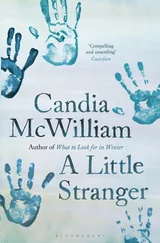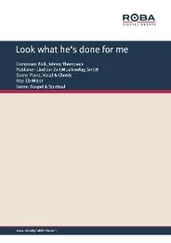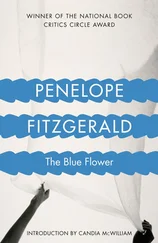He had found me out. I had always known that it was lucky I was good at schoolwork because I was so ugly. The odd thing is, why did I not think that this relation, this non -relation, of mine was telling the truth? After all, I couldn’t imagine him telling a lie. During those summers in Holland, I too took a holiday from telling lies.
The first large family in whose cousinhood I tried to affix myself was the great clan of Mitchisons. It was a joke in scientific circles at the time that more than half a ton of human flesh answered to the name Professor Mitchison. Naomi Mitchison, the sister of J.B.S. Haldane, was the matriarch and pivot of the family. She lived to be one hundred and three, the oldest Old Dragon that doughty prep school has yet produced, and one of the first baby Dragons. Doris Lessing has described in her autobiography the atmosphere of intellection at Carradale, the Mitchison house in Argyll. I doubt if I can match her for I recall the passage as absolutely spot on and now of course can’t find it, though maybe I should learn to delegate now I am blind. That would make a drastic and rather late character change.
Naomi was known by her children, her grandchildren and her friends as ‘Nou’. One son, Geoffrey, had died in childhood from meningitis. The death is described by Nou’s friend Aldous Huxley in his novel Point Counter Point . There were five remaining children, Denny, Murdoch, Lois, Avrion, Valentine. Murdoch was Professor of Zoology at Edinburgh, his wife Rosalind Professor of History. Rosalind was known as ‘Rowy’. Rowy had been a close friend of my mother and her daughter Harriet was my friend; each pair of friends was as dissimilar in the same way as the other. That is, where Rowy was effective, certain, dark and convinced, my mother was indecisive, unsure, blonde and ductile; the same was so of Harriet and myself. Harriet’s younger sister Amanda went on to become a journalist who came from the Independent Magazine to interview me. When she was a refinedly pretty little girl, I had, with Harriet, tormented Amanda by telling her long, plotless, essentially theologically based stories about a monster we called the King Devil. I can’t think where we got him from, since the Mitchisons were sternly rationalist and unbelieving. Harriet’s reading tastes ran to The Lord of the Rings , which I could never hack, though I was a sucker for Narnia, so it looks as though I should bear the brunt of the responsibility for the King Devil. When Amanda came to interview me, I felt it only right to give her, in every regard, the upper hand. I was ashamed of my beastly stories in the dark at the commodious Edinburgh house of her childhood. The interview was perfectly nice, though it implied, which may be possible, that my mother’s suicide was the result of incompetence rather than volition. I’ve always comforted myself with the thought that what my mother did was what my mother wanted, but maybe it is good, if sore, to keep an open mind.
Harriet and I both wanted to be doctors. Harriet became one and I still think about it. That’s a difference between us.
The village of Carradale lies in a bay on the eastern edge of the Mull of Kintyre. In recent years, it has been tragically newsworthy because almost every member of its small fishing fleet was drowned. That guts a community for generations.
The big house was harled and painted white, pepperpotted and roofed in slate the colour of lavender when dry, of thunder when wet. There were never, it seemed to me, fewer than twenty adults in the house at a time, always a few babies and then there were middlies and, what we were becoming, teenagers. That I did not fall completely into internal delinquency is almost certainly due to the Mitchisons, Rowy at the core of it, but all those others each of whose names I can remember, with their faces, for ever, at the age they were when I was turning twelve, though most of them now are professors themselves and members of the intelligentsia, whatever it is now called. Certainly not the ‘chattering classes’. They were nothing as trivial as chatterers, rather forceful, indeed irresistible, asserters.
During our teenage years, we were sent to sleep at The Mains, the Scots word for the home farm. This was a sensible decision. Dressing for dinner took me about four hours, though I’ve never met a vain Mitchison, including those who possessed beauty: Clare and Kate, Mary, Valentine and Josh. It was in the bathroom at The Mains that I first saw underwear made for the delectation of men rather than at the behest of spinsters. It had been hand-washed, evidently, and was dependent from the taps of a washbasin in the freezing bathroom. It was at once very small and very emphatic, lacy, red, and belonging to the girlfriend of Francis Huxley.
The drawing room in the big house was full of the sort of silence that is made by eight or nine good-quality brains working hard and separately, absolutely not a library silence, more like being in a vast digestive system. Small, fierce Naomi sat typing at her desk that looked out over the unsmooth Highland lawn, a hedge of Rugosa roses, the path to the sea, Carradale Point itself and the sea beyond. She wrote well over ninety books. The light in the room was low and seemed to be green. There was a sizeable mobile made of metal fish that very probably interpreted Darwinian theory.
In the plain, loaded shelves was a tan first edition inscribed to Nou by its author of The Seven Pillars of Wisdom , on top of which I had one Easter found a chocolate egg hidden. This was a rare success for me since the annual egg-hunt clues had as a rule a scientific and mathematical bias, with a strong seam of Scottish history. After Nou’s death, this volume went up to auction and I saw it again in a newspaper; what it was and what it meant to me so separate.
Nou was, in addition to being an Argyllshire councillor, though devoid of any whiff of landlordism or lairdliness, Mother of the Bakgatla tribe in Botswana, and frequently one or more of her honorary Bakgatla children would be staying at the big house.
Nobody said, but Nou, as well as coming from the intellectual purple, was also, though it infuriated her to be addressed thus, Lady Mitchison. Her late husband had been made a Labour life peer. I mention this at all only to introduce the ticklish subject of what to call the people who worked for her, since she was at once so clearly the product of at least two kinds of aristocracy and a good old-fashioned Red.
One evening we older children were asked by Percy, who did the gardening, although one did not call him the gardener, to gather caterpillars from the kitchen garden. The cabbage white has a caterpillar that is fat and striped like a wedding cravat; when you pick it up it looks interested at both ends. We took our catch, if you can call anything as docile as a few bowls of caterpillars a catch, in to Nellie, who certainly was not the cook.
The caterpillars, dipped in flour and nicely fried, appeared as the first course that night in deference to the palates of Nou’s guests from Botswana.
The dining table was enormous, thick, not polished but raw wood, aged, stained, practical; it was a rectangle with curved ends; there must be a geometrical term for this figure but I lack it. I do not mean an ellipse. There seemed in that atmosphere of intellectual certainty so little that was elliptical in the way my father was in person and in the way his mind worked. I am ashamed to say that I escaped from his intelligent failures of certainty to the Mitchisons’ apparent categoricalness with the cowardice that goes with a callow mind aspin. My father’s way offered no shelter, while that of the Mitchisons offered much of it and, or so it seemed, to spare. I was, as I am not now, sick for certainties. I now find them infertile and too often rooted in prejudice.
Читать дальше











